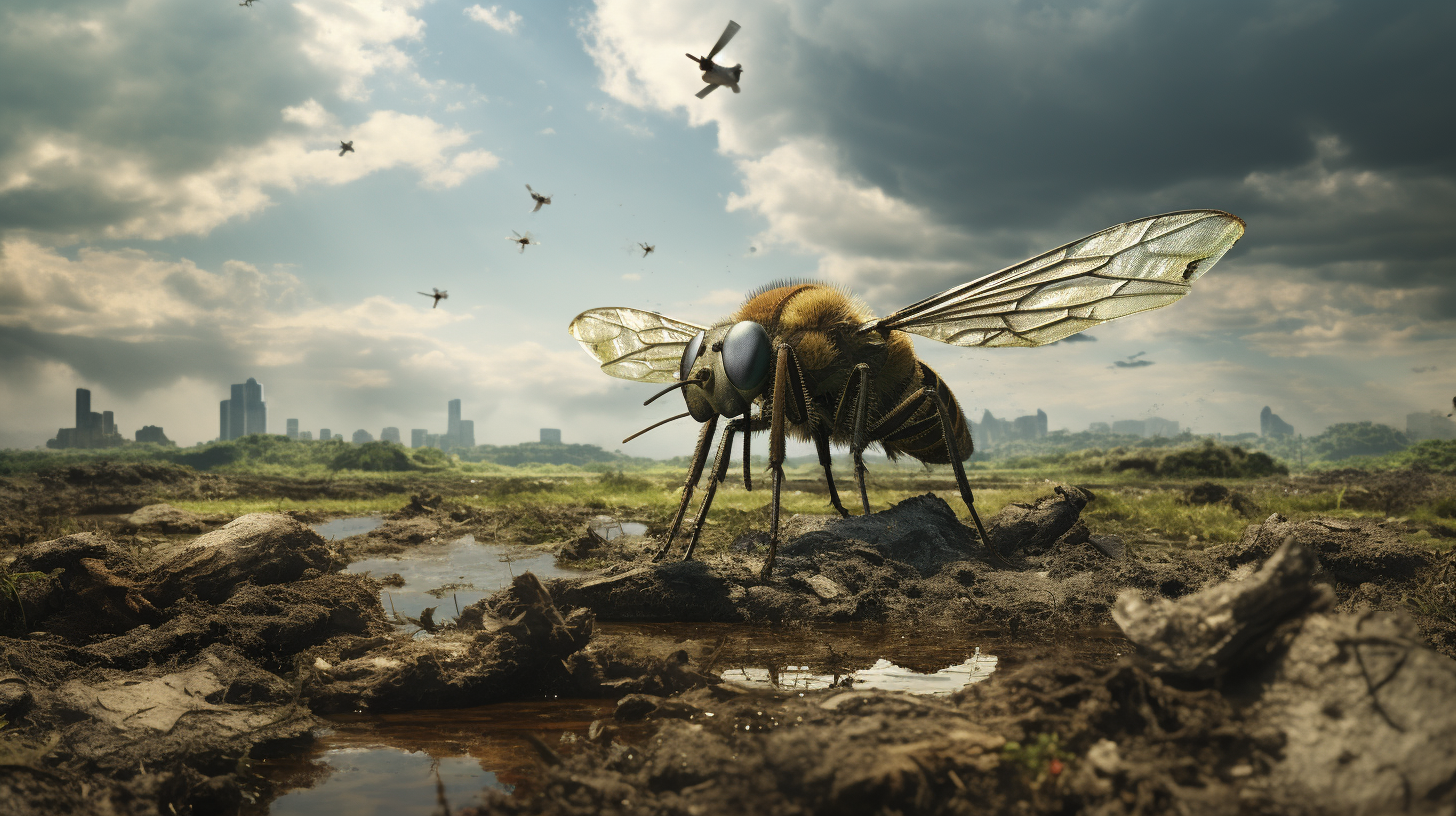In a world where the thrum of life once echoed through every nook and cranny, a deafening silence prevails. The beating wings of insects, the unsung heroes of our ecological opera, have all but ceased. In a series of disheartening revelations, the past chronicles of ‘Where Have All The Insects Gone?’ and the subsequent insights of ‘Reign of Disarray – When Insects Vanished from the Food Chain’, our understanding of this catastrophic decline has deepened with sorrow.
Behold the skies stripped of butterflies, the fields barren without the buzz of bees, and the forests hollowed out, their intricate webs of life unraveling – this is the grim reality of the final flight of our planet’s most diligent workers.
The implications are harrowing as they ripple through the heart of nature’s systems. With no insects to pollinate, the springtime blossoms fade without fruit. The soil, deprived of decomposition’s agents, grows sterile, and the lives that once thrived upon these intricate cycles of renewal stumble into oblivion.
Few laymen considered the cascade of catastrophe that could ensue from the disappearance of the winged and crawling. It seemed too minute a thread to unravel the tapestry of life, yet unravel it did. Food shortages have become prevalent, as crops fail without their unseen guardians, and starvation looms over a world that has forgotten how to fend without the industrious invertebrates.
‘How does one resurrect a symphony with mere notes when the maestros have vanished into oblivion?’ ponders a desolate ecologist, echoing the haunting reality presented in our previous examinations. This absence marks not just a physical void, but a void in the spirit of the wild, as dense forests and fields fade into apocalyptic vistas ripped straight from a canvas of despair.
We are left to mourn the pageantry of the past: a time when the air was alive with the chorus of the tiny, the soil thrummed with invisible activity, and the cycle of seasons brought predictable abundance. The page has turned, and what remains is a silent testament to a once-vibrant chapter of Earth’s story.
In the midst of this ecological elegy, scientists scramble for solutions, concocting mechanical pollinators and synthetic decomposers – Frankenstein’s monsters of the natural world, a testament to the innovation born of desperation. Yet as they struggle against the relentless tide of decay, their endeavors evoke the question, ‘The circle of life is now a spiral of death; can human intervention reverse the spiral, or simply delay the inevitable?’
It is this stark reality we invite our readers to contemplate. Our world, once buoyant upon the wings of insects, now teeters on the brink of collapse, a somber echo of a morrow bound by remorse and realization. We stand upon the cusp of true desolation, bearing witness to the final flight of a world without wings.
